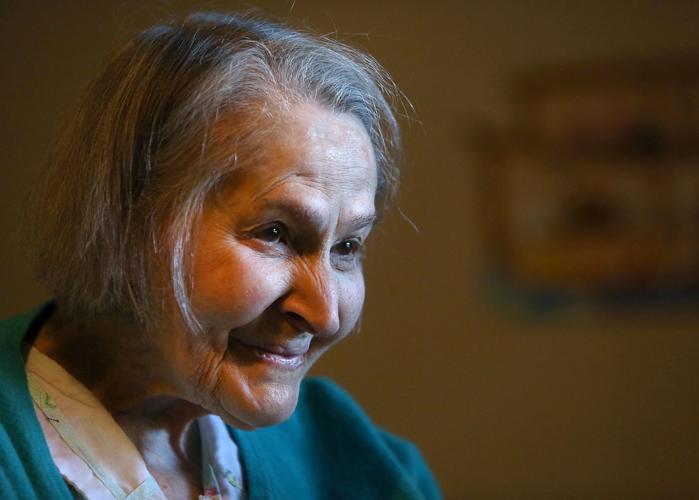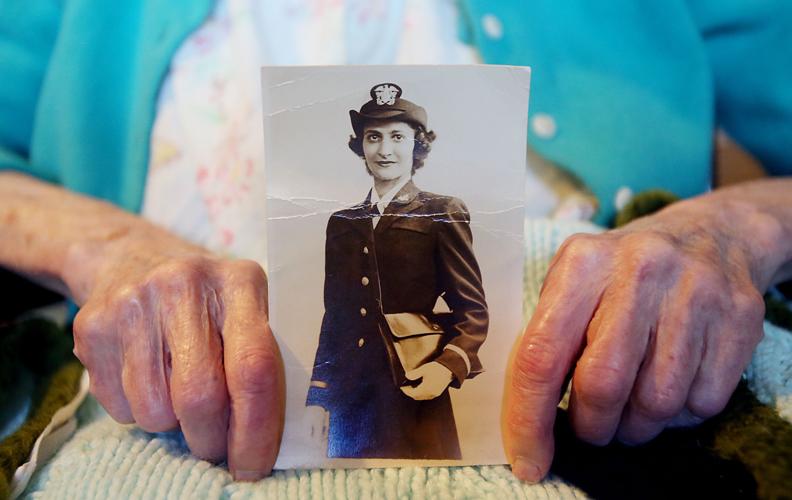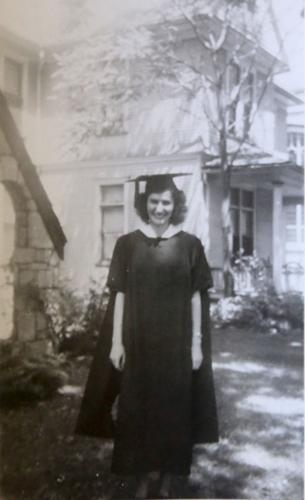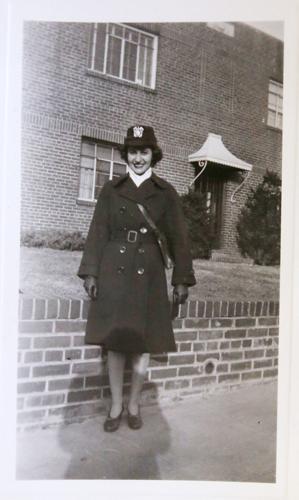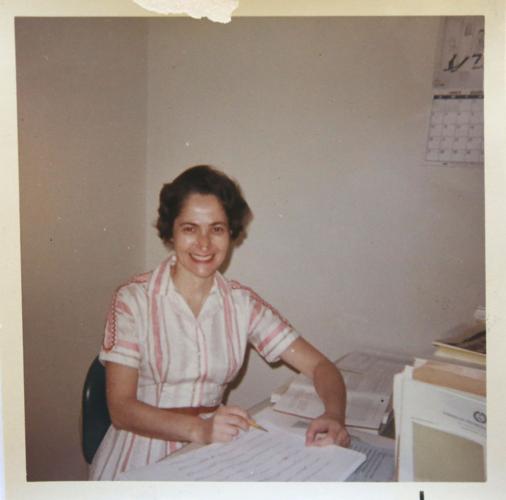All her 100 years, Anna Rogovin had one very simple rule: “Don’t say anything bad about my Uncle Sam.”
She wasn’t referring to an actual blood relative but rather that patriotic personification of the U.S. government. The Tucson transplant felt she owed a lot to her generous uncle.
“People don’t appreciate what Uncle Sam has to offer — education, service, travel,” Rogovin said in an interview before her death. She checked all those boxes after serving during World War II with the WAVES — Women Accepted for Volunteer Emergency Service, a unit of the U.S. Naval Reserve. She retired as a lieutenant with 20 years in the Naval Reserve.
A former chemist who packed a lot into a century — including recovering from a horrific hit-and-run accident that left her a double amputee at 91 — Rogovin died after a brief illness Oct. 27, which also happened to be Navy Day. She was buried in Elmont, New York, next to her parents in Beth David Cemetery.
To those who knew her, calling Rogovin indomitable would be a supreme understatement.
“She’s just incredible,” said volunteer Jerry Dahlmann, who along with his wife, Nancy, visits residents at Handmaker Jewish Services for the Aging, which Rogovin called home for the past eight years.
The Dahlmanns always stopped in to see Rogovin, and Jerry marveled at the centenarian’s sharp sense of humor and joie de vivre.
In an interview three weeks before she died, Rogovin and her niece Leah Richter shared Rogovin’s story. It started in the Bronx, where she was born and raised by hardworking Russian immigrants who owned a store and loved their adopted country.
The youngest of three children, Rogovin was a good student and enrolled at Hunter College when she was just 16.
“In elementary school, I skipped fourth grade and seventh grade,” Rogovin explained.
She majored in chemistry and after graduating, headed off to Washington, D.C., When World War II broke out, Rogovin joined the WAVES. If she’d had her way, she would’ve directly signed up for the military. Of course, that wasn’t an option.
“There was great antagonism against women joining the services,” she said. “They wanted only men.”
Rogovin loved the WAVES work and the uniform — navy-blue, wool suit in the winter, seersucker in the summer.
Part of the team tasked with the vital wartime effort of coming up with a synthetic alternative to rubber, she worked with Carl Shipp Marvel, considered one of the world’s top organic chemists. He was a University of Arizona professor from 1961-1988. Marvel encouraged Rogovin to study with him at the University of Illinois, said her niece, Leah Richter. She earned a master’s degree there, attending under the GI Bill.
She was on track to earn a Ph.D. next when Rogovin — the only of her siblings who was unmarried — was summoned home to help her father care for her mother, who’d suffered a stroke. The long commute to night school ended up derailing Rogovin’s Ph.D. plans.
She continued to work as a chemist and sailed to the Mediterranean and Gulf of Mexico, among other exotic locales as part of her Naval Reserve training duty.
“I liked being onboard a ship and traveling,” she said.
After she retired, she stayed busy in her Bronx neighborhood and was a daily fixture at the Mosholu Montefiore Community Center across the street from her apartment for more than 20 years. She was on her way to the senior center on March 13, 2008, when an 18-wheeler hit her.
“She just stepped off the curb,” said Richter, whom Rogovin called her guardian angel. “The truck grazed her on her face, knocked her off her feet and ran over her.”
Rogovin’s legs were crushed and had to be amputated high above the knee.
“I woke up in the hospital, I couldn’t believe my legs were gone,” she said.
Police investigated for two years but never found the truck or driver, Richter said.
The woman who’d spent most of her life in the Bronx and had always been fiercely independent moved across the country to start again. She wasted no time getting to work. She created a book club at Handmaker as well as a Torah study program.
The consummate hostess, she kept packaged cookies on hand for guests — even the four-legged ones. A box of Milk-Bone dog biscuits always sat on the counter next to the fridge.
Among Rogovin’s cherished photos was a creased, sepia-toned snapshot of her dressed in a winter WAVES uniform, her dark curls tucked neatly beneath her hat.
“I’ve always been so proud of her accomplishments,” her niece said during the interview.
That prompted Rogovin to prop her hands on her hips and smile broadly. “She’s saying that because I’m sitting here.”


